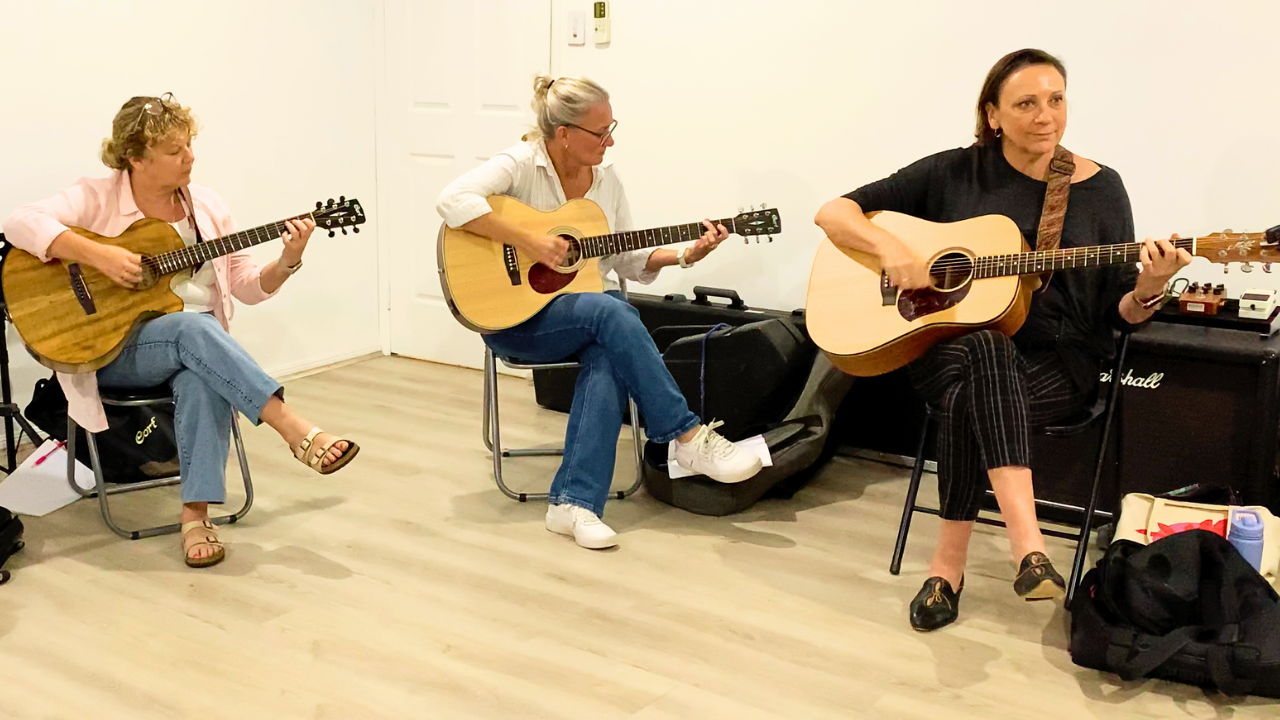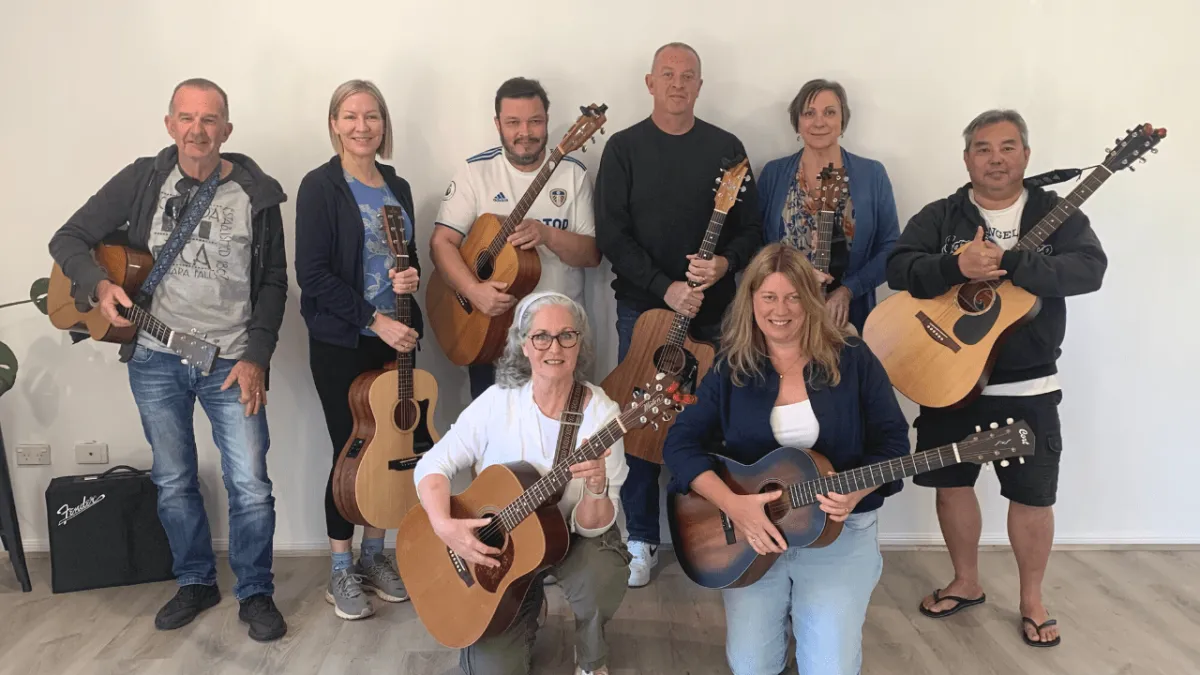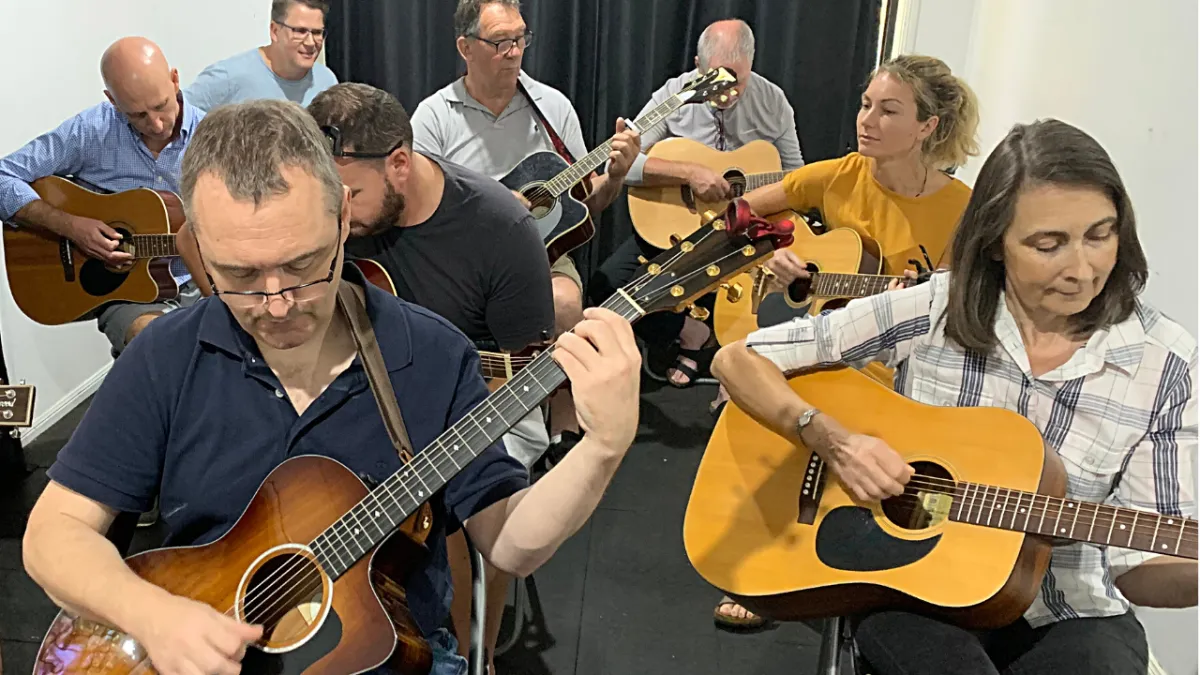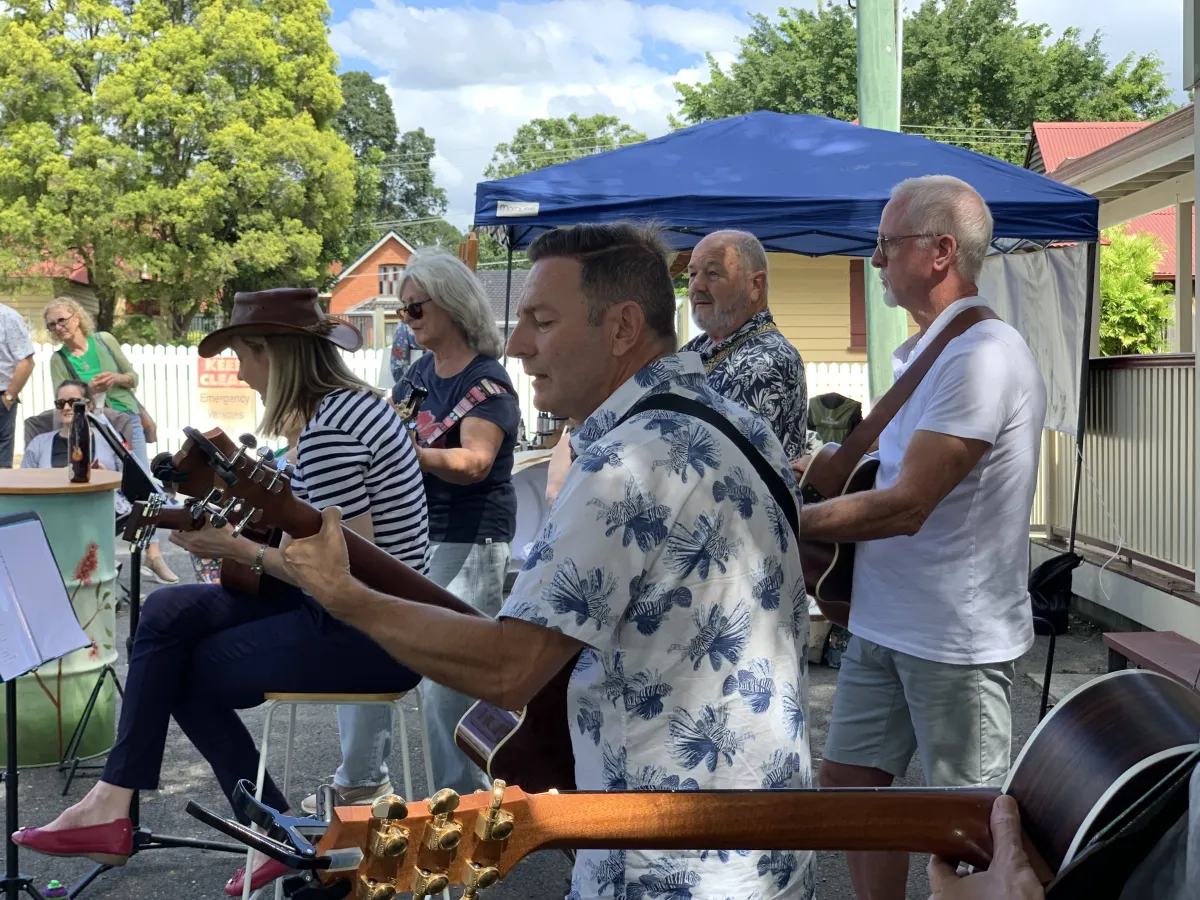Tried Learning Guitar But Still Can’t Play Songs? Let’s Fix That.
At Gold Coast School of Guitar, I help frustrated adults finally play real songs — without scales, theory, or drills.
This is exactly what I wish I had: songs-first, simple steps, real progress.
You don’t go home to "practice." You go home with a plan — and real results.


Are You Over 40 And Still Struggling To Play Songs You Love?
You’ve taken lessons. Watched YouTube. Tried teaching yourself.
But you still can’t sit down and just play the songs that made you want to pick up a guitar in the first place.
That was me too.
For years, I tried all the “proper” ways — scales, exercises, theory — and still couldn’t play songs I enjoyed.
I even quit guitar entirely for 4 years.
What changed everything? I flipped the system. I started with songs.
Now I teach adult beginners like you the exact same way I finally learned:
Simple songs you actually want to play.
Small, manageable steps.
No overwhelm. No pressure.
You’ll finally enjoy playing — and stick with it
Why Adults Love Our Guitar Lessons
Small group classes (not big, impersonal lectures)
Play real songs from day one
Friendly, relaxed environment
No confusing theory — just simple, proven steps
Perfect for beginners, rusty returners, or frustrated learners
The CPR Song-Learning System
Here's What You'll Learn:
After teaching hundreds of adult beginners, I created a simple, 3-step system that helps you finally play songs — without feeling overwhelmed.
Chunk It Down
We break every song into small, clear sections. You’ll always know what to practice.
Play It Slow
No pressure. No racing. We slow it down, loop it, and let your hands catch up
Repetition
Smart, focused reps that build confidence and muscle memory fast.
You’ll see weekly progress — and actually enjoy practicing.
Ready to try it yourself? Book a free 1-on-1 intro session and experience the CPR Song-Learning System in action. Learn more about our Carrara-based adult guitar lessons.
What You’ll Be Able To Do

Perfect for adults who want stress-free, song-based lessons:
Develop rhythm (even if you think you have none)
Smooth open chord and barre chord changes
Multiple strumming patterns that feel natural
Play songs for fun — no endless drills
Build great habits from the very first session
Why Group Classes Work Better
You won’t be sitting awkwardly one-on-one.
You’ll learn alongside others just like you — beginners, rusty returners, and hobby players — all learning songs together.
You’ll gain confidence faster, make new friends, and actually have fun.

Looking for beginner guitar lessons in your area? Check out our adult guitar classes in Carrara and nearby suburbs.
Don’t just take my word for it — here’s what some of our students have to say about learning guitar with us…

Phil Green

"The sessions are easy as they are straight forward, step by step instructions... ""

Lisa Seredycz

"It's very easy. Very achievable.. even my husband could do this (and he doesn't even play!)"

Geoff Morgan

"A really easy way to learn new songs!"
More Than Lessons—We Play for Real Too
At Gold Coast School of Guitar, we don’t just learn songs — we play them.
Many of our students go on to perform together at local community events.
No pressure, no expectations — just fun, supportive opportunities to make music together and build real memories.


“I never imagined I’d be playing guitar at a market! The support from this group is next level.” – Dave, GCSG student
What Happens In Your Free Intro Session
You’ll walk away with real progress — not a sales pitch.
Play along with your teacher — not solo under pressure
Learn how the CPR Song-Learning System works
Ask questions, get feedback, and have fun
See if it’s a good fit for you (zero pressure)
Ready To Finally Play The Songs You Love?
👉 Book your free intro session today — no experience needed.
📍 Studio Info
🏠 Address: 1 Greenbank Circuit, Carrara QLD 4211
📅 Class Times:
• Tuesday to Thursday: 6:00 PM
• Saturday: 9:00 AM
📞 Phone: 0448 620 966
📧 Email: [email protected]
Frequently Asked Questions
How much do lessons cost?
Most students invest between $197–$329 per month, depending on the class format. We’ll walk you through the best option during your free 1-on-1 intro session — no pressure, just clarity.
Do I need to own a guitar to start?
Yes — even a cheap beginner guitar is fine. If you’ve got one already, awesome. If not, it’s a good sign you’re serious about giving this a real go. Need help choosing one? Just ask — we’re happy to point you in the right direction.
I’ve never played before — is that okay?
Absolutely. Most of our students start from scratch — no experience, no problem. You’ll be strumming a real song in your first session.
Am I too old to start learning guitar?
No such thing. Many of our students are in their 50s, 60s, and beyond. If you can move your fingers, you can learn — we’ll take care of the rest.
What happens in the free intro session?
You’ll meet 1-on-1 with your teacher, learn your first song, and get a feel for how we teach. No pressure to sign up — it’s just a chance to see if we’re a good fit.
Where are lessons held?
All lessons take place at our studio in Carrara, Gold Coast. You’ll get all the details when you book your session.
What days and times are available?
We currently run classes:
• Tuesday to Thursday: 6:00 PM
• Saturday: 9:00 AM
If you're after a particular time, we’ll do our best to match you with a group.
Get In Touch
Email: [email protected]
Address
Studio: 1 Greenbank Circuit, Carrara QLD 4211
Session Times
Tuesday, Wednesday, Thursday - 6:00pm
Sat – 9:00am
Phone Number:
0448 620 966
Tap the map above to find us or get directions.
Simple. Fun. Song-Based
Guitar Lessons for Adults 40+
Serving Carrara, Nerang, Merrimac, Worongary, Ashmore, Highland Park and surrounding Gold Coast suburbs.
© 2025 Gold Coast School of Guitar - All Rights Reserved
